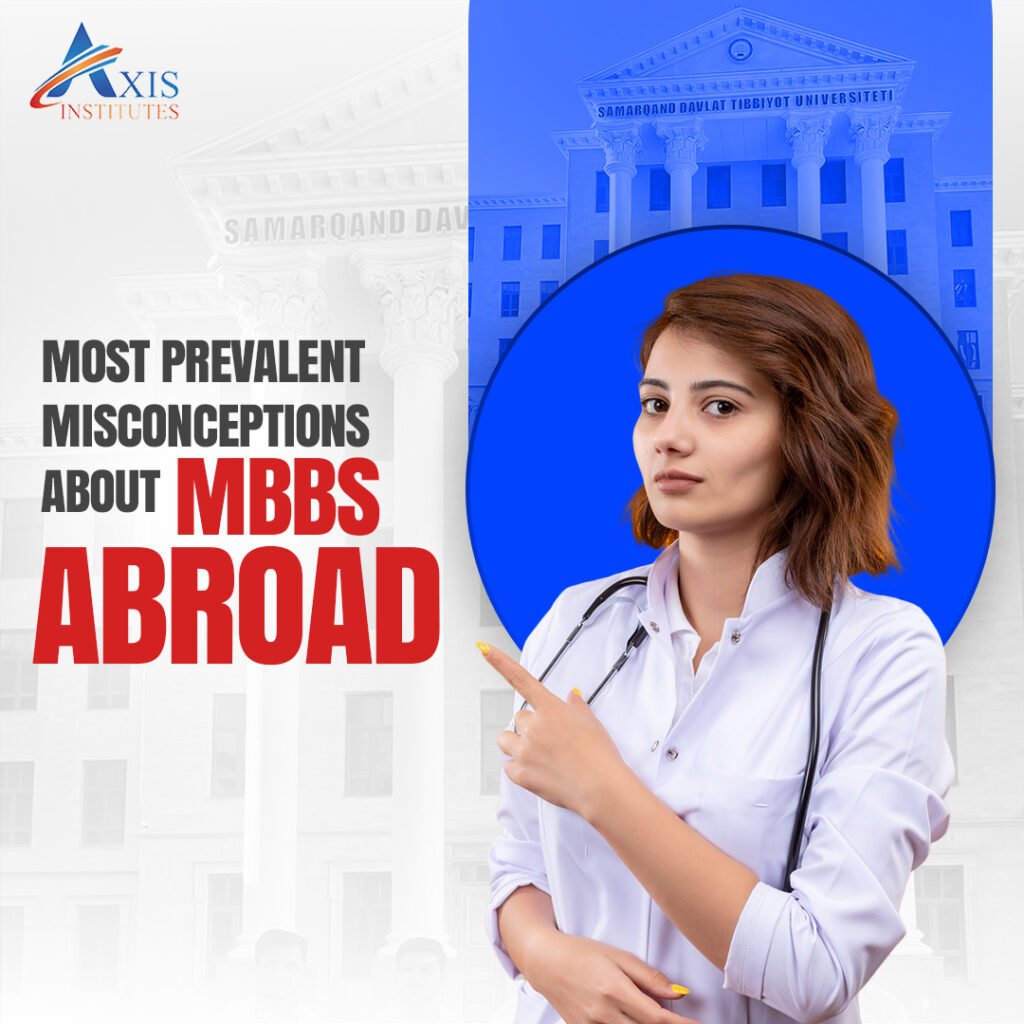The choice to study MBBS (Bachelor of Medicine, Bachelor of Surgery) is an important one if you want to pursue a career in medicine. Many students choose to research their possibilities both in India and overseas since they want to become doctors. However, there are many misconceptions about MBBS education abroad that can make decisions difficult. Let’s dispel some of the most widespread myths regarding earning an MBBS degree overseas to clarify the facts and options open to would-be medical students. And provide them with a route in the shape of the Axis Institutes so they can overcome any obstacle.
Myth 1: Studying MBBS abroad means limited career opportunities
There is a misconception that studying MBBS abroad limits career opportunities solely to the country of study. In reality, graduates from reputable universities abroad have ample opportunities to pursue careers internationally, including in India. Globalization in the healthcare sector has increased the demand for skilled doctors, creating opportunities for graduates to work in various countries or even pursue advanced studies and specialization abroad.
Myth 2: Studying MBBS abroad is risky in terms of safety and security
Some individuals believe that studying MBBS abroad exposes students to safety and security risks. While it is important to consider safety factors when selecting a study destination, many countries ensure the well-being of international students. Universities abroad often have dedicated support services, including campus security, student counselling, and emergency assistance, to ensure a safe environment for students. Researching and choosing reputable institutions in secure locations can mitigate any perceived risks.
Myth 3: Studying MBBS abroad hinders cultural integration
There is a misconception that studying MBBS abroad may hinder cultural integration and limit exposure to the local culture. However, studying abroad offers a unique opportunity for cultural immersion and understanding.
Students who can interact with diverse communities, learn about different traditions and gain a broader global perspective. Many universities organize cultural exchange programs and events to facilitate integration and encourage students to embrace new cultures.
Myth 4: Studying MBBS abroad requires extensive travel and long separation from family
Some people believe that pursuing MBBS abroad means being far away from family for an extended period and involves frequent travel back and forth. While studying abroad does require being away from home, modern communication technologies make it easier than ever to stay connected with loved ones.
Students can maintain regular contact through video calls, messaging apps, and social media platforms, helping bridge the distance and providing support during their educational journey.
Myth 5: Studying MBBS abroad limits clinical exposure and practical training
There is a misconception that studying MBBS abroad may limit opportunities for hands-on clinical exposure and practical training. However, many universities abroad prioritize clinical training as a crucial aspect of their medical programs. They have affiliations with renowned hospitals and healthcare institutions, providing students with ample opportunities to observe and participate in clinical rotations, gaining valuable practical experience. These institutions often follow a structured curriculum that ensures a well-rounded medical education, including practical training in various specialties.
Are you dreaming of studying MBBS? Don’t let myths cloud your judgment. Axis Institutes is here to guide you towards an exceptional education. Whether you choose to study MBBS in Uzbekistan or MBBS in Spain, our authorized partnership ensures access to renowned universities and abundant career opportunities. Let us debunk the misconceptions and pave the way to your medical success.

